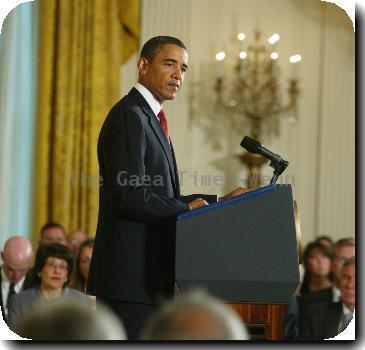NATO commander in Afghanistan says Taliban train in Iran, warns of slow progress in war
By Rahim Faiez, APSunday, May 30, 2010
NATO general in Afghanistan: Taliban train in Iran
KABUL, Afghanistan — The commander of NATO and U.S. forces in Afghanistan said Sunday there is “clear evidence” that some Taliban fighters have trained in Iran.
Gen. Stanley McChrystal told reporters in the Afghan capital that Iran - Afghanistan’s western neighbor - has generally assisted the Afghan government in fighting the insurgent group.
“There is, however, clear evidence of Iranian activity - in some cases providing weaponry and training to the Taliban - that is inappropriate,” he said. McChrystal said NATO forces are working to stop both the training and the weapons trafficking.
Last month, McChrystal said there were indications that Taliban were training in Iran, but not very many and not in a way that it appeared it was part of an Iranian government policy. He did not give details on how many people have trained in Iran at Sunday’s news conference.
The U.S. command confirmed that an American service member was killed Sunday in a small arms attack in southern Afghanistan. May is already the deadliest month this year for U.S. troops with 33 deaths - two more than in February when American, NATO and Afghan forces seized the Taliban stronghold of Marjah in Helmand province.
The month also brought the 1,000th U.S. military death in the Afghan war since it began in 2001 when Marine Cpl. Jacob Leicht was killed Thursday by a roadside bomb in Helmand.
The AP’s figures are based on Defense Department reports of deaths as a direct result of the Afghan conflict, including personnel assigned to units in Afghanistan, Pakistan or Uzbekistan. Non-U.S. deaths are based on statements by governments that have contributed forces to the coalition.
The Taliban have spread out beyond their heartland in the south in recent years to increasingly launch attacks countrywide.
In the north, insurgents detonated a remote-controlled bomb Sunday as a police convoy passed by, killing seven officers in a province previously considered to be relatively safe, said deputy provincial Gov. Shams-ul Rahman.
The attack was the deadliest of a half-dozen separate incidents across the country.
In nearby Kunduz province, militants attacked a police checkpoint in Ali Abad district, triggering a gunbattle that killed three insurgents and wounded seven others, the Interior Ministry said.
In eastern Paktia province, NATO planes dropped guided bombs on Saturday to kill a team of militants that had fired mortars at coalition forces in Zormat district.
Eight Afghan police were wounded Sunday by a suicide bomber who struck a checkpoint on the outskirts of Khost City southeast of Kabul, officials said.
And NATO and Afghan forces killed one suspected militant and detained several others at a compound in Helmand where bomb-making equipment was found. Coalition patrols arrested other suspected insurgents in operations elsewhere in Helmand and neighboring Kandahar, both considered Taliban strongholds.
In Ghazni, also in the south, militants on Sunday attacked a convoy of fuel tankers on a road regularly used as a resupply route for NATO forces. The assault left the trucks burning but caused no injuries.
“I saw the convoy moving in the morning and then suddenly I heard an explosion. Fighting started and lasted for 30 to 45 minutes. They burned a lot of containers,” said local resident Azrat Shah.
McChrystal stressed to reporters that the Afghanistan fight will extend long beyond July 2011, when President Barack Obama plans to start drawing down forces.
In recent meetings with President Hamid Karzai, Obama “reaffirmed the strategic partnership, which is way beyond July 2011,” McChrystal said. “I think President Obama’s decision to begin the reduction of U.S. forces in 2011 really needs to be viewed in that context.”
However, the strategic partnership depends on being able to transfer some responsibility to Afghan forces, which are still plagued by a lack of training and distrust of the people despite years of training programs funded by the international community.
The Marjah offensive has been followed by the re-infiltration of Taliban forces into the area despite a continuing strong U.S. Marine presence.
“We’ve dramatically changed the state of the insurgency in that region,” McChrystal said, while acknowledging that “progress there is not yet fully established.”
A summer offensive planned for the Taliban birthplace of Kandahar will be similarly painstaking, McChrystal said. The plan is to focus on delivering services like electricity and water, he explained.
“Progress will be measured in months, rather than days,” he said.
Also Sunday, Canada said the chief of its forces in Afghanistan, Brig. Gen. Daniel Menard, was being relieved following allegations of an inappropriate relationship. Col. Simon Hetherington, the acting commander of Canada’s forces, said Menard’s dismissal would not have an impact on the Canadian mission in southern Afghanistan.
____
Associated Press Writer Christopher Torchia contributed to this report from Kandahar Air Field.
Tags: Afghanistan, As-afghanistan, Asia, Barack Obama, Bombings, Business And Professional Services, Canada, Central Asia, Iran, Kabul, Kandahar, Middle East, North America, United States







